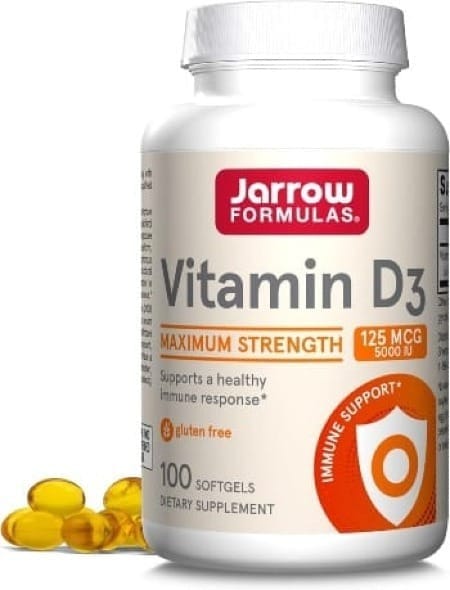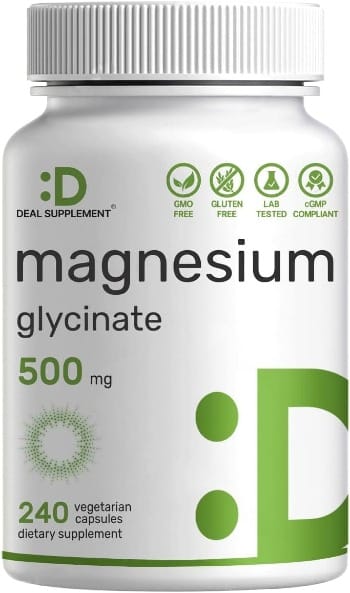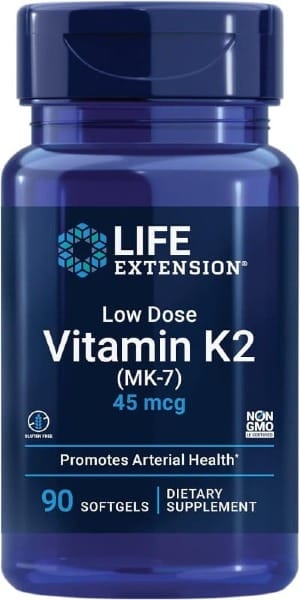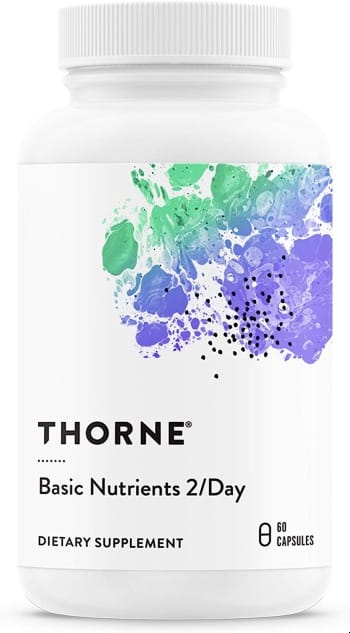I’ve spent years wading through experts and scientific studies to find the supplements that have the most rigorous research, expert endorsement, and anecdotal support. This is the list I wish I had 10 years ago to save thousands of dollars on non effective supplements and months of research time and experimentation. I have used all these myself while tracking blood markers as well as my subjective feelings. Basically when friends and family ask what to take this is the list I give them.
I’ll keep it short to get to the good stuff but my name is Jake Kaiser and I am obsessed with supplementation and finding a minor edge to health and performance to help fuel creating my ideal life. As an engineer by trade I like to optimize and anything that can add a little boost to my health, longevity, and physical or mental performance is worth it to me.
Before we dive in, remember that exercise, diet, sleep, and stress management should be the cornerstones of a healthy life and supplements are just the cherry on top for those needing to fill gaps in their diet or eke that little bit more.
To be fully transparent I have included the brands I personally use below and have made these affiliate links to support this blog with the intent of using any proceeds to fund health experiments that I will share here. I have no affiliation with any of these brands and these are the ones I have chosen based on my own research. Basically these links cost you nothing to use and give me a few cents if you buy from the landing page.
Supplements List
- Fish Oil (~2 grams of EPA daily)
- Vitamin D (3,000-5,000IUs to keep blood levels at ~50ng/dl)
- Magnesium (Different forms ~400mg total daily )
- Magnesium Chloride: SlowMag (taken in morning)
- Magnesium Glycinate: Solary, Pure (taken in evening)
- Magnesium L-Threonate: Life extensions (take in evening)
- Creatine (5 grams of monohydrate)
- Caffeine
- Vitamin K2 (MK7) (45mcg 3 times a week)
- Multivitamin
- Throne, Pure Encapsulations
- Favorite budget option: Life Extension
Supplement Details
Now let’s dive into why these are the supplements worth spending your hard earned money on
Fish Oil - Omega-3 Fatty Acids
Omega-3s are essential fatty acids that support heart health, skin health, reduce inflammation, and are also crucial for brain and eye health. Omega 3’s can not be made in the body so getting them via diet is the only way to have these critical building blocks.Omega-3s are made up of EPA, DHA, and ALA forms. ALA is found in vegetables like soy, flaxseed, and some nuts and then can be converted in the body to EPA and DHA. This conversation is not an efficient process so pure EPA and DHA are the best forms of Omega-3s and mostly found in marine animals.
These fatty acids have a plethora of research showing their benefits but to keep this article shorter just highlight a couple notable benefits from the research:
- Increasing HDL or "good" cholesterol [1]
- Helping with mental health by reducing depression and anxiety [2]
- Studies have shown EPA reducing all cause mortality [3]
Dose
Based on studies on increasing one's Omega 3 index to the optimal range a dose of 1.75 to 2.5 grams of Omega 3’s daily is likely ideal [4]. I personally monitor my EPA and DHA levels through blood tests like the Omega-3 index to find what supplement dosage is needed for my body. Dr. Rhonda Patrick and Dr. Peter Attia both recommend a 8-12% score on this test and I have found that closer to 3 grams daily gets me to this range with my diet and body. This target percentage is based on a study that found people with an Omega index of 8% vs 4% had a 5 year greater life expectancy [5]. What to takeI look for a high quality fish oil with lower oxidation and from a reputable brand. My favorites are: Viva Naturals, Nordic Naturals, and Carlsons
Vitamin D
Vitamin D plays a critical role in many bodily functions like directly influencing over 1,000 genes related to cell growth, differentiation, and regulation. Some of its key functions are related to bone health through affecting calcium absorption, regulation of one's immune system, and supporting one's cardiovascular and nervous systems.
Vitamin D comes in two forms. D2 is found in plants and D3 is synthesized in the skin from 7-dehydrocholesterol with sun exposure. There are also some good dietary sources of vitamin D like: fatty fish, egg yolks, liver, and some mushrooms like Shiitake.
This is a critical supplement for many individuals as approximately 50% of the global population has insufficient vitamin D levels [15] . Vitamin D levels are affected by sun exposure, the time of the year, diet, skin color, and a variety of factors but the fact remains that about half of people are well below the ideal range so supplementation is a great option for many individuals. The most accurate way to determine your Vitamin D dosage needs is through a 25-hydroxy vitamin D blood test. Based on the literature and experts in the field I aim for levels between 40 and 60 ng/ml on this test. This test can likely be prescribed by any doctor or can be ordered directly online for around $30 with a quick stop at a blood draw facility. (For online testing I use Jason Health and have no affiliation with them) I found my vitamin D levels below this ideal range and actually in the defincent range a couple years ago even with spending a good amount of time outside. I have gotten my friends and family to get this vitamin D test and found a majority of them on the low side so recommend everyone gets tested and adds some Vitamin D to their supplementation regime.
Dose
I titrated my dose depending on sun exposure, time of the year, and semi-frequent blood tests but generally find a daily dose of 2,000-3,000 IUs in the summer and 4,000-5,000 IU’s in the winter keeps me at my target levels. I prefer 1,000 IU pills to allow me to adjust dose and like the offerings from: Jarrow , Life Extensions, and Thorne.

Magnesium
Magnesium is a mineral essential for many body functions from bone health to brain function [7]. It is involved in 600 enzyme reactions that support numerous cellular and body systems [8].
Supplementing with Magnesium is especially important and potentially impactful to health as approximately 50% of Americans are deficient in magnesium [9] which can lead to health issues like: developing metabolic disease, colon cancer, high blood pressure, diabetes, and in extreme cases death. Magnesium is found in foods like leafy greens, nuts and seeds so if you are not eating these regularly and in large quantities you are likely at a high risk of deficiency and supplementation is a great choice. I would also note that people who exercise regularly need more magnesium due to losing it via sweat and people who drink alcohol also need extra magnesium as drinking reduces magnesium stores in the body.
Dose
The recommended dose of magnesium is ~420 mg daily for men and ~320 mg daily for women and I get my magnesium mostly in the form of magnesium glycinate. Magnesium glycinate is an organic magnesium salt that is well absorbed and causes less distress to the stomach than many other forms. Magnesium is not able to be directly tested via blood work so this is a supplement I recommend most people just add to their daily routine without checking levels as unless your diet is a lot better than mine some extra magnesium is probably needed to get you to target levels. When looking at health influences and experts a majority have magnesium as part of their daily routine. Rhonda Patrick (full supplement list) recommends glycinate, Peter Attia (full supplement list) mixes forms of magnesium like citrate for digestion and chloride for better absorption, and Andrew Huberman (full supplement list) is a big fan of magnesium L-Threonate due to its ability to cross the blood brain barrier and potential to help with sleep.
What I take
I use the magnesium glycinate from Deal (240mg at night) and Slow Mag (1 pill) in the morning prior to exercise. I will also often take magnesium L-Threonate (Magtein is the brand of this form) from Life Extensions or others prior to bed for potential sleep and cognitive benefits.

Creatine
Creatine is a very well studied supplement with many proven benefits for physical performance and emerging evidence shows likely cognitive benefits. Creatine is involved in ATP production and through this pathway is known to support muscle strength, muscle size, and muscle recovery [10]. In terms of cognition, studies show creatine improving short term memory, concentration and a reduction in mental fatigue [11].The final thing to note is that creatine is not only for gym bros. Women and anyone engaging in physical (and likely mental work) can benefit from creatine and the amount of research on its safety and efficacy are unmatched in the supplementation field.
Dose
For cognitive benefits a lower dose of 1-2 grams daily may be all that is needed but for those looking for the strength and performance benefits most experts recommend a dose of 5 grams daily which is what I recommend as the dosage for mental performance is still being determined. Lastly I see no need to load creatine with higher doses when first taking and for most find this only leads to stomach issues.
What I take
I would avoid any forms of creatine other than monohydrate as it is the most studied, most affordable, and is most likely to be pure without “custom” additives which may have unintended impacts.
I take 5 grams most days and have used Throne, Nutricost, and Sports Research
Caffeine
Caffeine is so prevalent it’s easy to forget to include but it is a powerful molecule with many benefits. Generally it is a natural stimulant and found in sources like tea, coffee, and other beverages. Caffeine is known to enhance cognitive function and mental alertness, enhance memory, reduce feelings of fatigue, increase physical performance, and lower the risk of certain diseases including Parkinson’s disease, Alzheimer's disease, stroke and certain types of cancer [12].In the form of coffee and tea caffeine is also a potent antioxidant that can also help protect cells from damage and reduce inflammation. These beverages also contain various polyphenols and flavonoids that protect against oxidative stress, reduce inflammation, and support overall health.

Dose
Caffeine can be consumed in your form of choice but I prefer coffee and tea with no added sugar. Keeping your dose of caffeine below 400-500 mg daily is probably best in my opinion but personally I like to keep my intake below 250 mg and also stop any caffeine intake after 1pm to avoid sleep disruption.
Vitamin K2
Vitamin K is a crucial fat-soluble nutrient that helps regulate calcium by activating proteins like osteocalcin for bone incorporation and matrix-Gla proteins to prevent calcium buildup in arteries. It's also vital for prothrombin, a protein needed for blood clotting.
Vitamin K exists in two forms K1 and K2. K1 is found in plants like spinach, kale, and soy and is processed in the liver to support blood clotting and calcium transport. K2 is found in fermented foods, meat, and dairy is distributed to bones and arteries. Through this process K2 is thought to reduce vascular calcification and lower the risk of arterial disease. Higher K2 intake is linked to a lower risk of coronary heart disease [13] and is a good choice for supplementation as is lacking in most western diets due to a lack of fermented foods. The National Institute of Health recommends a daily dose of 90 mcg of vitamin K for women and 120 mcg for men. Most health experts prefer K2 in the MK7 form for its longer half-life and bioavailability.
Dose
I take a 100mcg K2 (MK7 form) 3-4 days a week alongside vitamin D. Vitamin D also is critical to bone health and taking them together is hypothesized to maximize their benefits. K2 from any reputable brand is likely fine but I have been using Life Extensions

Multivitamin
This is the supplement on this list with the least robust data sources to back up spending money on but when I look at the modern western diets lack of fruit, vegetables, and variety feel a multivitamin as a good insurance policy to avoid any severe micronutrient deficiency.
There are some studies showing that taking a multivitamin can help with cognitive function when aging [B] yet the majority of meta-analyses have not found major benefits to taking a daily multivitamin. I will note studies looking at multivitamins are challenging to conduct and I have yet to see any data showing danger in taking a multivitamin.
With this information I do not take a multivitamin every day and try to titrate my decision to take on based on my diet. When I am eating healthy and getting a variety of fruits and vegetables I will skip the multivitamin and on days my diet is less on point I will take a multivitamin in the evening to cover any gaps.
What I take
I like multivitamins with better sources of the component vitamins and current favorites are from Throne and Pure Encapsulations

Bonus
As a quick bonus the other supplement with a lot of research is soluble fiber in the form of psyllium husk. This has been show to help with lipid levels and managing blood glucose.
It can be hard getting enough fiber in your diet so supplementation makes a lot of sense here.
This Brand has lowest levels of heavy metals and would be my recommendation
Related Articles
- Rhonda Patrick Supplement List
- Peter Attia Supplement List
- Andrew Huberman Supplement List
- Bryan Johnson Supplement List
- Andy Galpin Supplement List
References
[1] https://www.mayoclinic.org/drugs-supplements-fish-oil/art-20364810#:~:text=There's%20strong%20evidence%20that%20omega,%22
[2] https://www.ncbi.nlm.nih.gov/pmc/articles/PMC9962071/
[3] https://www.nature.com/articles/s41467-021-22370-2?fbclid=IwAR2tfZ0UTBvQPTI0QCPnZYQcKaLDhMi5F5e8x7Vsazcd9bG4SYMWrTyCllk
[4] https://www.sciencedirect.com/science/article/pii/S0002916522012783?via%3Dihub
[5] https://www.sciencedirect.com/science/article/abs/pii/S1933287417300028
[6] https://www.ncbi.nlm.nih.gov/books/NBK532266/
[7] https://link.springer.com/article/10.1007/s00394-023-03123-x
[8]https://journals.physiology.org/doi/full/10.1152/physrev.00012.2014
[9]https://www.ncbi.nlm.nih.gov/pmc/articles/PMC5786912/#:~:text=Moreover%2C%20around%20half%20(48%25),amount%20of%20magnesium%20from%20food.&text=The%20US%20Department%20of%20Agriculture,323%20mg%2Fday%2C%20respectively.
[10] https://www.ncbi.nlm.nih.gov/pmc/articles/PMC8949037/
[11] https://www.nature.com/articles/s41598-024-54249-9#:~:text=Creatine%20alleviated%20SD%2Dinduced%20fatigue,4%20h%20after%20creatine%20administration.
[12] https://www.ncbi.nlm.nih.gov/pmc/articles/PMC4462044/
[13] https://www.ncbi.nlm.nih.gov/pmc/articles/PMC7247390/#:~:text=Conclusions,of%20vitamin%20K1%20and%20CHD.
[14] https://examine.com/research-feed/study/d3RlX9/
[15] https://my.clevelandclinic.org/health/diseases/15050-vitamin-d-vitamin-d-deficiency






